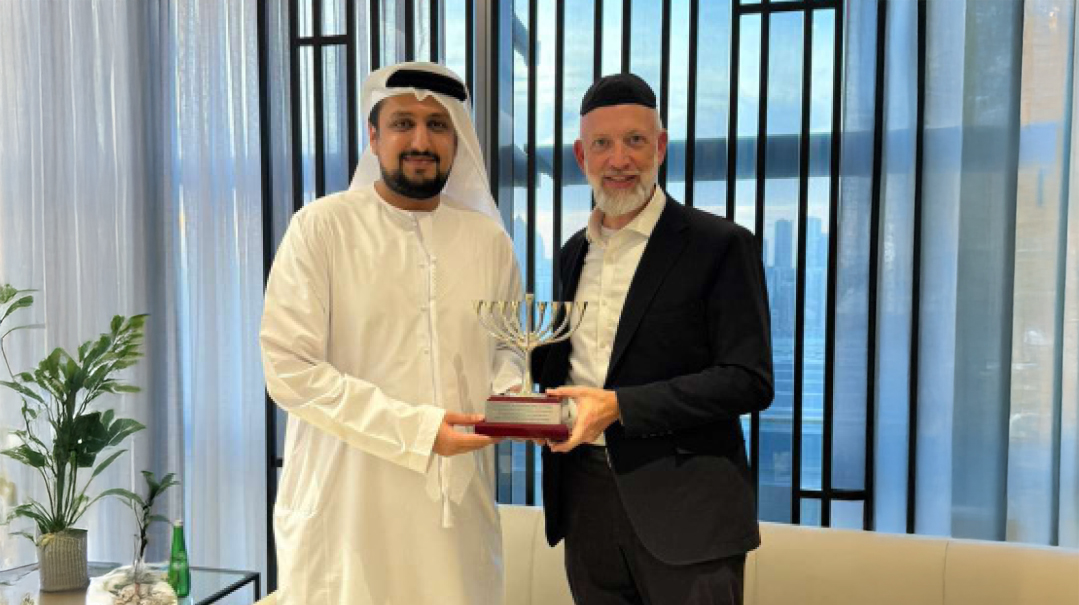Nobody’s Perfect

W
hen I recently saw the following quote, “Parenting was so much easier when I raised my non-existent children hypothetically,” I could identify, not just because I am a parent who is raising actual humans, but because it speaks to the very essence of a struggle I’ve had since I can remember: navigating the tension between the ideal and the real.
I’ve always been an idealistic person. Many of my life decisions have been motivated by my drive to do things as they should be done or make things as they should be. When idealistic people are younger and less mature though, and things are defined as black and white, wrong or right, recognizing that something is not as it should be can be impossible to reconcile.
Yet as we get older, the recognition that how things are might be far from how they are meant to be can create exciting opportunities for growth and improvement. We also come to realize that not everything can be improved or changed. With the gift of maturity, we learn to accept.
The tension between the ideal and reality seems to come with the territory of being a religious Jew. Every waking minute is filled with the expectations of the ideal: the ideal way to get dressed and be dressed, to daven, to make a brachah, to bentsh, to earn a living, to learn Torah, to treat other Jews, to be a spouse, to raise children. The discrepancy between the ideal way to go about the requirements of life and how things actually turn out may prove to be overwhelming at times. We can react by striving for more, learning how to improve, and taking concrete actions to do better. Or we can simply give up, as the pressure is too great.
But there’s another option: We can also learn to accept the struggle. Live with it. Have some self-compassion. Recognize that this is where we’re at, while admiring those around us who live according to the ideal, in whatever area, and strive to emulate them in our own unique way. Accept with emunah what is out of our hands to control and focus on what is required of us to do with our best efforts and intentions.
The struggle between the ideal and reality is confounded by the looming presence of what is really only a figment of our imagination: the frum Superman and Superwoman, each created according to one’s own set of ideals. Superman I gets up early every morning before minyan to learn b’chavrusa, is notably successful at work, provides for his family above and beyond, is honored at school and shul dinners for his time and financial commitments to the klal, runs a riveting Shabbos table with guests galore, sings well, dresses well, spends quality time with each of his many children, and exercises daily.
Superman II learns full-time, is relieved of the stresses of providing for his family, is a respected talmid chacham, lives frugally but comfortably, successfully raises his many children to all be yerei Shamayim, understands that fancy suits and cars are nothing more than gashmiyus, and experiences a single-mindedly spiritual life permeated entirely with kedushah.
Superwoman I works in the chosen field of her desire (even if she doesn’t have to), serves on various chesed committees, raises a large and well-coordinated family, sends her sons and daughters to all the right yeshivahs and seminaries, and whips up magazine-worthy weekday meals, Shabbos and Yom Tov seudahs, and sheva brachos consistently, no matter how busy life is.
Superwoman II supports her husband in learning by working a demanding and fulfilling full-time job, serves on various chesed committees, raises a large and well-coordinated family, sends her sons and daughters to all the right yeshivahs and seminaries, and whips up magazine-worthy weekday meals, Shabbos and Yom Tov seudahs, and sheva brachos, consistently, no matter how busy life is.
Superman I and Superwoman I, as well as Superman II and Superwoman II, are models in shalom bayis and parenting. They know, both in their marriages and in their childrearing, exactly when to give space and when to expect more — in an inspiring way, of course. In fact, they probably give parenting and marriage classes to the community and do kiruv too.
These figures inhabit spaces in our minds in which they do not belong, creating glorified expectations of ourselves and of others as we try to live our lives, sometimes with our heads just above water. If something is askew, if one or more factors are missing in our romanticized version of how things are meant to be, then the equation is all off. We are left with disappointment and frustration. We’ve veered off the track and can never reach our destination. We live bedieved lives.
Why do we create phantom models of perfection and then attempt to measure ourselves up to these unattainable ideals? While there may be individuals who do check off many boxes on the list, it is rare to find a person who does everything well all the time. It is precisely here where we can learn a lesson or two about the power of vulnerability in our lives.
Although we consider vulnerability a weakness, Dr. Brené Brown, a research professor at the University of Houston, has been a trailblazer in studying the positive effects of embracing our vulnerabilities. In her TED talk, “The Power of Vulnerability,” she says “we associate vulnerability with emotions we want to avoid such as fear, shame, and uncertainty. Yet we too often lose sight of the fact that vulnerability is also the birthplace of joy, belonging, creativity, authenticity, and love.” In fact, when we drop the armor that prevents us from feeling vulnerable, we realize that vulnerability is our most accurate measure of courage. According to Brown, “what makes you vulnerable makes you beautiful.” It is true authenticity. In fact, she argues that vulnerability is the root of all emotions and feelings and is the path to deeper, more meaningful lives.
We might think that vulnerability implies emotional exposure, which is incongruous with our Torah ideals of preserving modesty, of not sharing everything we experience or everything on our minds with whoever is available to hear it. But vulnerability doesn’t mean overexposure. As Brown explains in her book Daring Greatly, vulnerability is “based on mutuality and requires boundaries and trust. It’s not oversharing, it’s not purging, it’s not indiscriminate disclosure, and it’s not celebrity-style social media information dumps. Vulnerability is about sharing our feelings and our experiences with people who have earned the right to hear them.”
And the first and most crucial step of being vulnerable is to be honest with oneself. It is allowing oneself to feel difficult emotions instead of pushing them aside — or worse, denying they exist. Vulnerability is an act of courage because it is an act of acceptance. Embracing our most authentic selves, warts and all, takes guts on the most personal of levels. Because it’s much easier to hide behind a façade than to do the internal work vulnerability demands. Only once a person has reached the acceptance of self and circumstances can the possibility of being vulnerable before others exist.
Imagine for a moment Superman and Superwoman II. All the boxes appear to be checked off except for one. Not all their children are “yerei shamayim.” No one should know. Keeping up appearances is in order. Being real about the shame would be too painful. But what would happen if they embraced their vulnerability, let down their guards, and looked that fear, uncertainty, and shame in the eye? Could that open up new avenues of meaning, depth, and fulfillment in their lives?
How would being vulnerable — being honest with their emotions and accepting their present reality — have a positive effect on this couple’s life?
BY ACCEPTING THEIR REALITY and refusing to view it as a sign of failure, these parents could channel their vulnerability as an opportunity to help other parents struggling with the same issue. Being open about their experiences, in the appropriate context, would foster true empathy. In fact, sharing their struggles and successes with others can be its own healing agent. And the ultimate benefactor of this acceptance is undoubtably their own struggling children. Being vulnerable in this situation would, indeed, provide meaning and promote joy, belonging, authenticity, and courage.
As frum Jews, we have a fine line to walk. In the name of preserving our inner sense of modesty, there is an extent to which we can and should share our personal struggles and challenging life experiences. The fallout is that sometimes we’re fake in order to compensate. We try to get away with appearing to have all the balls in the air at the same time. But such displays don’t truly benefit us or anyone admiring us from afar. In fact, they distract us from looking inward and developing the most important type of vulnerability: being vulnerable with ourselves.
What if we spent less emotional and physical energy on the attainment of perfection — if we stopped pretending to have it all and focused instead on accepting our own reality without looking over our shoulders at what appears to be someone else’s? What if we became more aware of opportunities to help others by striving for authenticity and truth? What if we began to do the emotional work of looking our struggles and weaknesses in the eye and started being truly honest with ourselves?
Maybe, in return, we would have precious little energy left to care so much about what everyone else thinks of us.
Originally featured in Mishpacha, Issue 761. Alexandra Fleksher is an educator, a published writer on Jewish contemporary issues, and an active member of her Jewish community in Cleveland, Ohio.
Oops! We could not locate your form.













